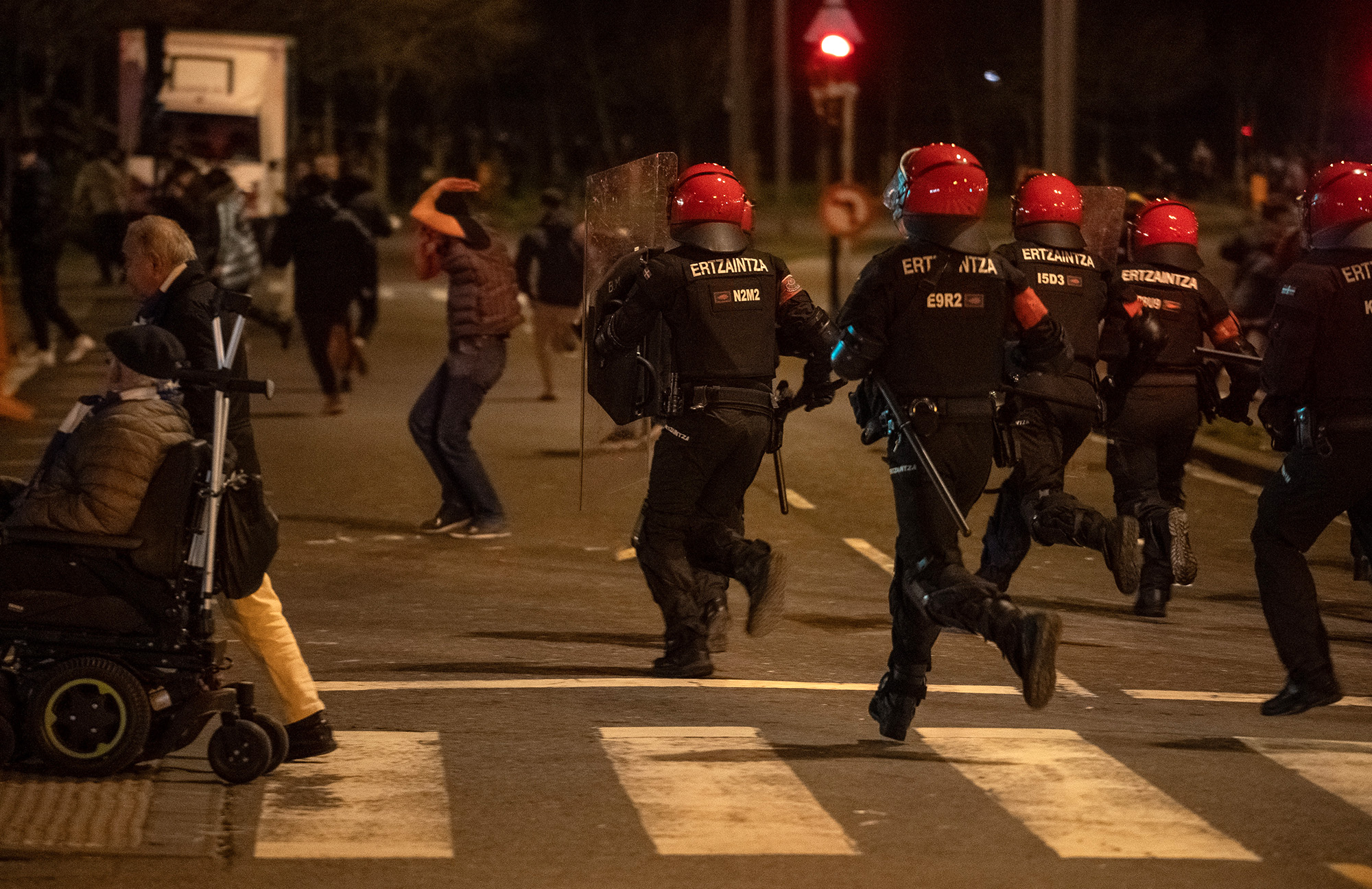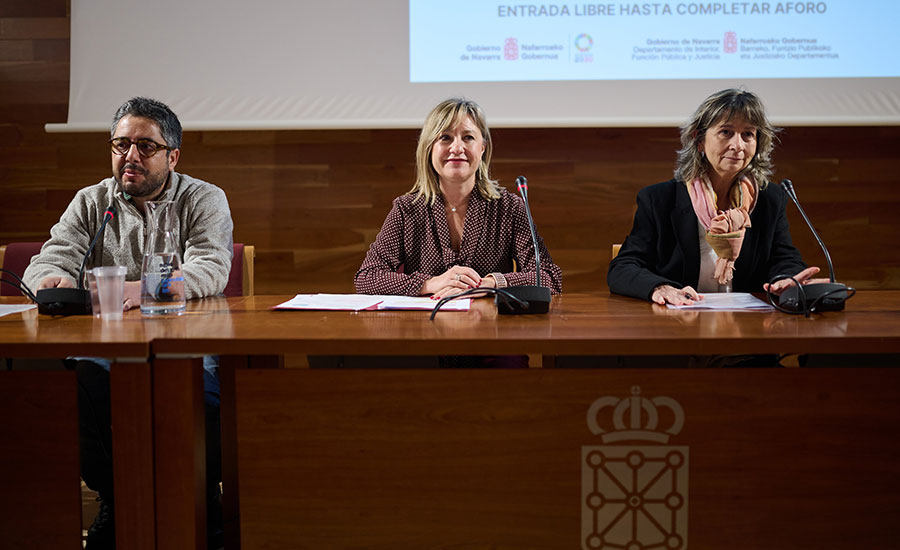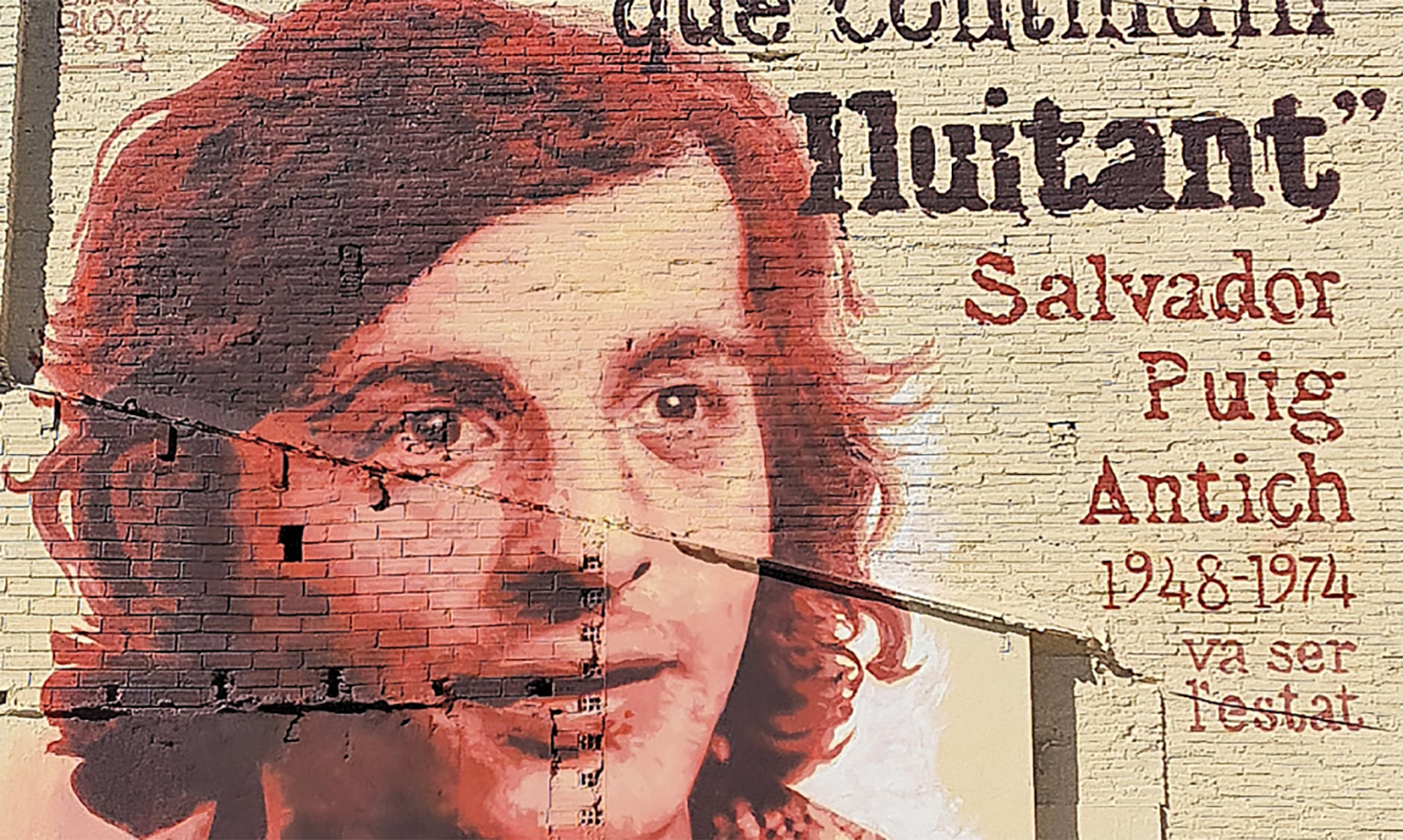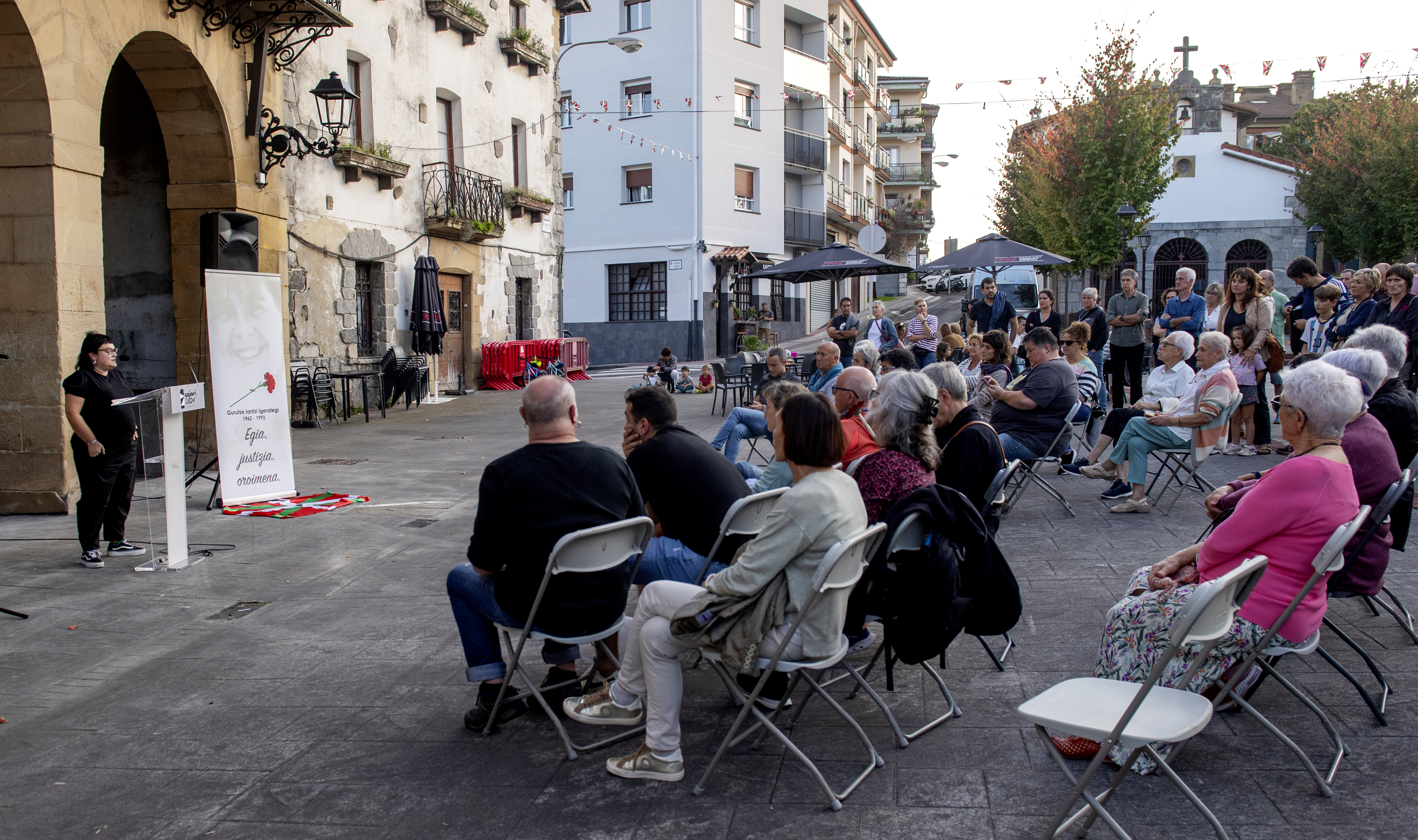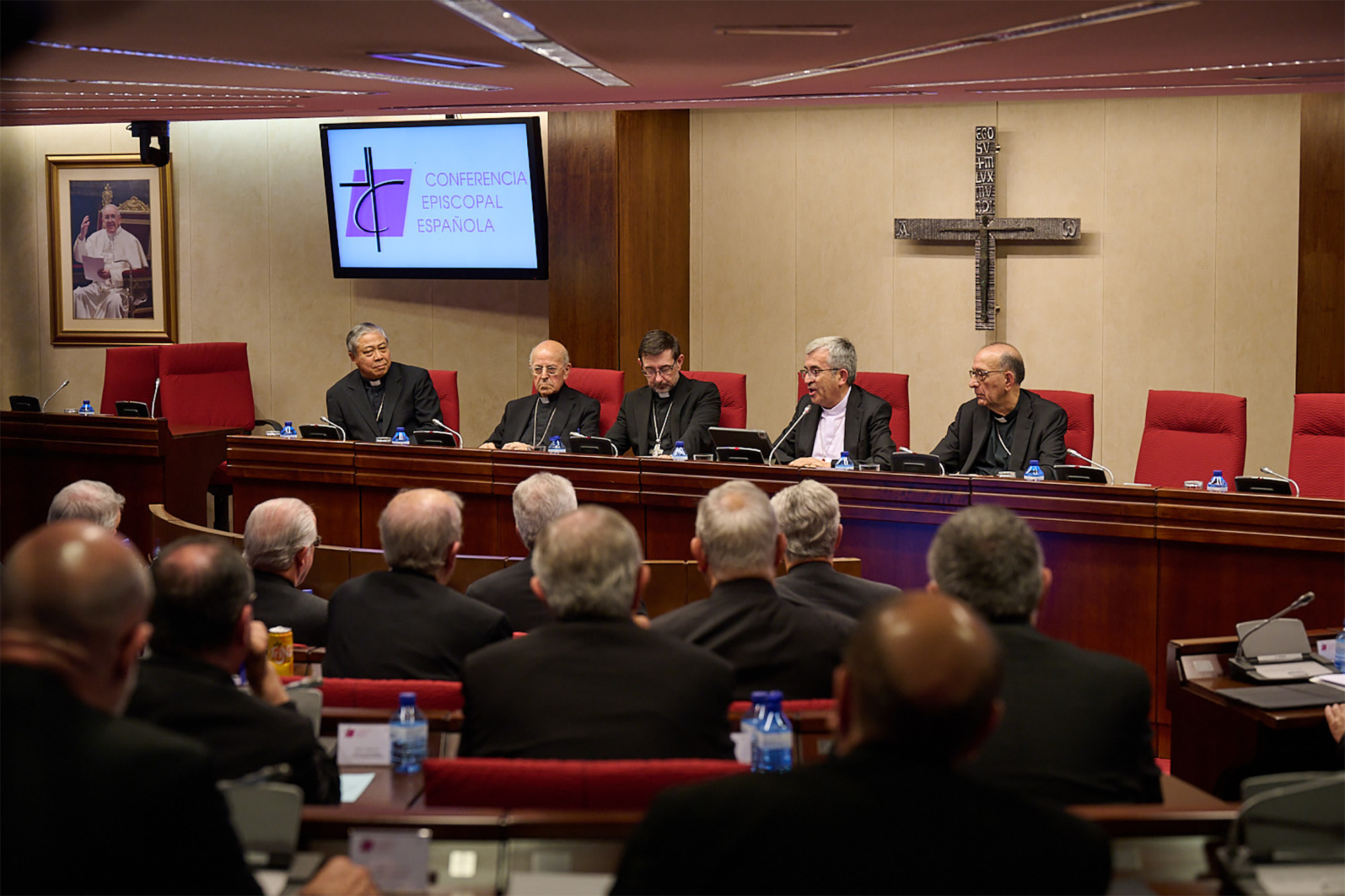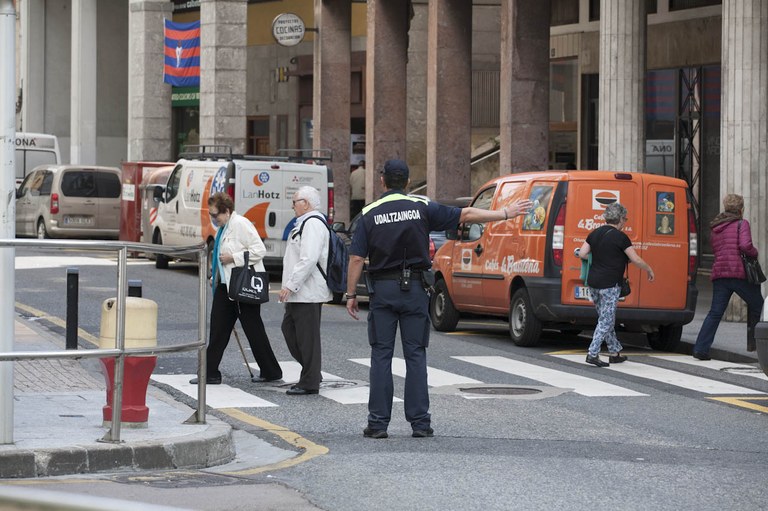Look at Alcedo: "In court, you see what life looks like."
- Look at Alcedo has been working for years at the Azpeitia Court. He says he's been touched by seeing "all misery," and that justice is not the same for everyone. This is an interview by Ihintza Elustondo to the journal Uztarria in the April 2019 issue.

Despite having studied anthropology, Miren Alcedo (Portugalete, Bizkaia, 1963) was left without work in this field and made competitions to work in the court. At first his intention was to work close to home, but he did not get a place in Bizkaia. In Gipuzkoa he had several localities to choose from, so he decided to move to Azpeitia to make his election. "The town I liked to live, because I found it bright and it was full of children and childrenas.EscogI one place or another, my daughter would also come with me, and Azpeitia seemed a suitable place for both." Since 2005, Alcedo has a seat in the Azpeitia Court and has since lived here. Learn about the functioning of the courts.
You've been to Azpeitia for fourteen years. What trajectory have you traveled since then?
In 2005, I got into the plaza at the Azpeitia Court, and then I started working here. At first I worked in instruction, in the sanctions field, and then I went to the general service. I was also liberated, in the LAB syndicate, and then I went back to court again. I worked at a social court in Donostia, and at the end of that job, I went back to Azpeitia. I recently started working in San Sebastian, because I wanted to know another jurisdiction. I work there in the civil field, in the family court.
Until recently he has been working in the general service of the Azpeitia Court. What is being done in this field?
Everything that enters the courtroom goes through there. In Azpeitia there are two courts, the first and the second, both are mixed, which means that the criminal and civil fields are studied. In the criminal field, these are minor and serious crimes, such as cases of violation or trampling of rights. On the contrary, if you have any disagreement with another person or institution, the case is directed to the civil way. In the civil sphere, all the accounts come to the court through a lawsuit, and I registered them; that is, I put the plaintiffs and the facts into a template, and one of my colleagues did the same with the attackers and the allegations in the criminal field. In addition, the writings come to the court – in these cases, the participant requests something from the court – and we also registered them. Processing with other courts is also carried out in this area. In addition, forensic doctors pass through Azpeitia, and I coordinated their agendas.
What is the scope of the Azpeitia Court?
It's the county court, the head of Urola Kosta. In addition, in Zumaia, Zarautz, Zestoa... there are peace courts, which are small courts, which carry out civil registration and notifications. In Azpeitia, all proceedings are carried out in civil matters from start to finish, but in the criminal field, when it comes to serious crimes, Azpeitia is instructed and the trial is held in Donostia.
What lawsuits come to the Azpeitia Court?
The crisis became apparent. Normally two or three divorces enter a day, and in 2012 or almost suddenly the divorces disappeared: they reached three or four a week. For the exordium, even if both parties agree, it is necessary to have a lawyer and a procurator, who must be paid. Moreover, at that time the fees law came into force and, therefore, in order to launch a procedure, you had to put money in. Money was being asked for everywhere, and that's why divorces were reduced. On the other hand, monitors – a matter in which a small amount of money is required – increased: small debts to banks, a tenant does not pay the fee... The expropriations, on the other hand, increased during the crisis; in Azpeitia, the homes are safe, but there were expropriations of workshops and premises. In addition, demands for the distribution of farms were also reduced in times of crisis.
What are the most common complaints and crimes?
Since 2005, there have been significant increases in drug networks and, above all, in cases of violence against women. The Azpeitia Court remains closed on weekends and afternoons of working days, but if there is any on-call account, something urgent, it opens. And for many weekends, workers have to come because there has been some case of domestic violence [that happens among family members] or violence against women [by the partner or former partner]. Go to court very young people, sometimes underage. On the other hand, many of the attacks that took place in the past were alleged robberies, and now, many are cases of fraud over the Internet. That has increased a great deal, and cases like this are very difficult to clarify.
The court is often associated with criminals, but for a place like this many people will...
Yes, there is also a Civil Registry in the Court, where birth and life documents are made. Before, also nationality documents, but as a result of the privatisation process, now no.
Some have denounced that the services offered by the Court of Instruction No. 2 in Madrid are being privatized. What's going on?
We justice workers thought that privatisation in this area was impossible, because, in theory, justice is for everyone and we all have to be equal. But there is one sector that can become a business, that of civil registration, and that has begun to be privatized. The birth certificate or life document is free of charge, but in time the service will be exempted from the court and must be paid. However, the area of nationality has already been privatised as it is an area that affects the most vulnerable people, as immigrants need nationality for everything. In addition, divorces can occur not only in the court, but also in the notary, where they have to be paid, and not in the court.
What do you think of this privatisation process?
Civil registration is the story of simple people. The rich have biographies, streets that bear their name... But to know what our ancestors were or what they were working on, we only have a civil registry. That's our little story; it's now in a public place, and privatizing is stealing history from humble people. But they did so in Madrid, and the Basque Government did not fight to win that competition. And I think that's a terrible loss.
Faced with the overflow of the courts, the workers have recently called for decent working conditions.
Now, the Azpeitia Court is in a better position, but it has been very strangled. Some reinforcements were put in place, with the temporary hiring of some workers, but they do not have a fixed job. In Azpeitia, there is a worker who works between 8 and 9 years, but always as a reinforcement. They want more precariousness. I also struggled with that, but it's very hard to get something.
What does it mean for Azpeitia to be tried in the village?
Most of all, it's very comfortable for people. But what happens is that the court, probably quite rightly, has a bad reputation. Because in the court there is repression: in principle, justice has to be equal for all, transparent, but then, in practice, we see that the justice or justice they call is an instrument or instrument of powerful to control people.
Claims against justice have multiplied in recent times. The case of the young people of Alsasua, the group rape of Pamplona, the Catalan political prisoners... What limits does justice have?
The law is enforced in the courts, but who does the law? The most powerful. And many times, even the one with the power decides how the law should be used. I have not been prosecuted by a criminal; most crimes are copper theft by gypsies, there are okupas in a house, stories of street vendors... What is that? The oppression of the weakest people, and that is done in court. We have also seen on television proceedings against bank owners, what penalties are they imposing on them? You realize it's much worse to have a fight in a bar than to leave people homeless.
Aren't everyone equal in justice?
Decisions are made in the Court on the basis of the person. Justice is not the same for everyone: justice is male, male, male and female. Let me give you an example, seen in Azpeitia. A minor reported having suffered sexual abuse in a Civil Guard control and, as a minor, went to the court accompanied by her mother. The girl declared and then, normally, the statement of the accused is heard. Since the defendants were Civil Guards, we had to cite them, but we did not cite them. The judge ruled that the young woman had been managed by her mother and that this was why the statement was made. I said: ‘But we’ll quote the Civil Guard, right?’ The judge replied: 'No, we don't bother them, because they have to do their job.' And it's over. The matter was closed.
Did you decide for your passion for justice to get into this world?
No, because I had the opportunity to make oppositions. But it's true that I thought the administration of justice would be more useful, and then I realized it falls short. Many discrepancies are clarified in Azpeitia, and I would like to think that some attacks are also avoided. But in court proceedings, nobody wins, and even if you win the trial, you always lose something: money in general, health, and sometimes, joy in living.
What do you like this trade?
I like to see what reality looks like, and you see it in court. From your table are all the misery, and that's sad, but you see what life looks like in court. It's not ideal, it's how it is. When I started working, a friend told me. "Be careful, you'll dry."
Why?
Because you see terrible things: because you see a child being prostituted by his father, who has pasted you, that a mother has denounced her son or daughter ... This is the right place for people to lose confidence.
Is there little love in court?
Those who come to marry will feel love, but from there, little.
That was said to me by the former student, who took a long time to file a complaint that was in court months and who, on the recommendation of the psychologist, had withdrawn the complaint of rape. And I kept quiet, unable to guess what to tell the young man that he still had... [+]












